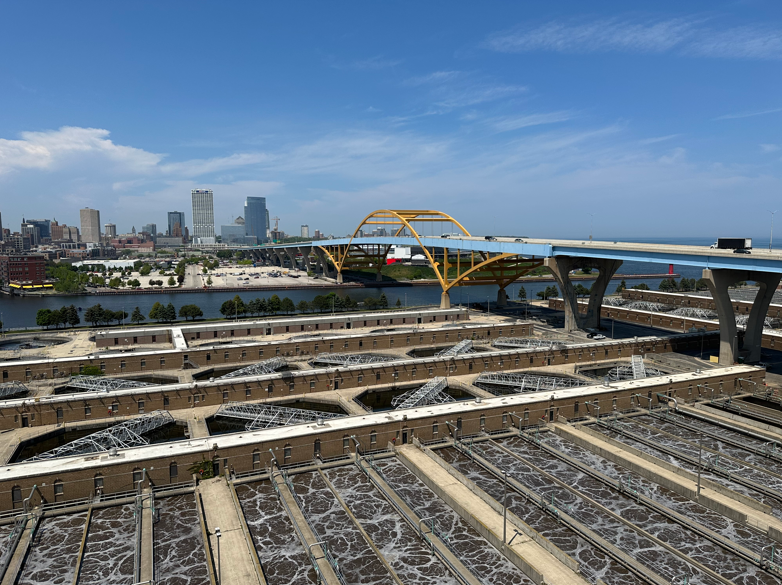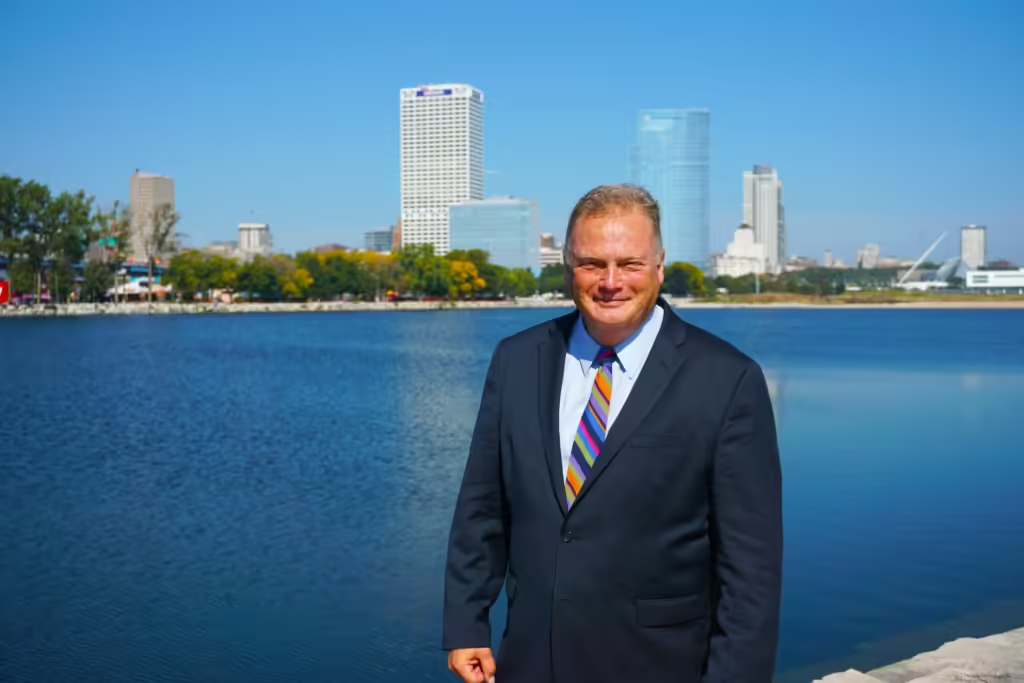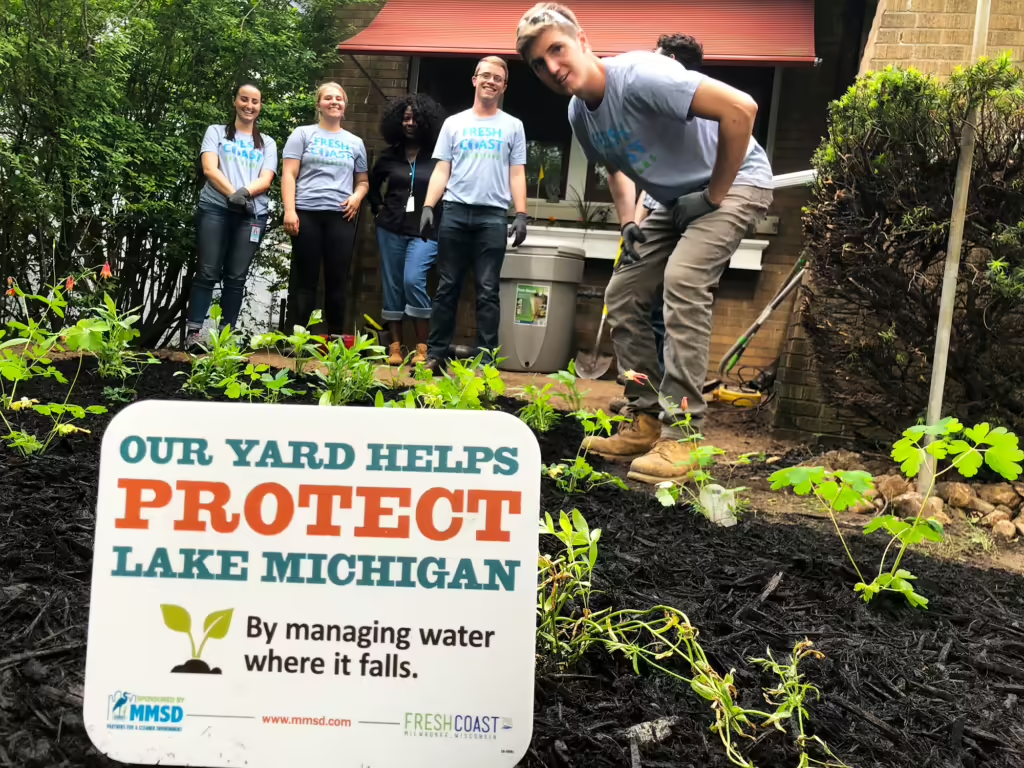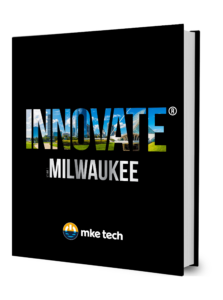INNOVATION IN WATER MANAGEMENT AND ENVIRONMENTAL STEWARDSHIP

Since 1994, the Milwaukee Metropolitan Sewerage District (MMSD) has captured and cleaned an impressive 98.6% of the water entering the regional sewers from its 423-square-mile service area. This is a significant achievement, considering that many metropolitan areas struggle to capture and clean the national goal of 85% of the water that enters their sewer systems. Before MMSD’s Deep Tunnels were implemented, this region experienced an average of 50-60 overflows into Lake Michigan each year. Now, the average has been reduced to just two.
For nearly a century, MMSD has protected public health and the environment in Greater Milwaukee, Wisconsin. MMSD is a regional government agency that provides water reclamation and flood management services for over one million people in 29 communities. Sustainability is a rich part of MMSD’s history, integral to present-day operations, and critical to the future. MMSD’s focus began with water reclamation and resource recovery, and its mission has evolved to include various initiatives that advance environmental and public health.

Pioneering Sustainable Practices with Milorganite® Fertilizer
Milorganite® fertilizer was born out of the demand to improve water quality. More than nine decades ago, sewage from Milwaukee’s growing population and industrial activities put the waterways and residents at risk. Responding to the need to treat wastewater, MMSD pioneered an innovative natural process. Organic matter in wastewater is consumed by microorganisms, resulting in a nutrient-rich material. Instead of simply discarding the abundant, nutrient-rich microbes into landfills, Milwaukee took a pioneering step to transform it into Milorganite®, a slow-release nitrogen fertilizer.
This innovative process involves heat-drying the microorganisms to eliminate pathogens and create a pelletized fertilizer. The production of Milorganite® has been instrumental in diverting over 10 billion pounds of waste from landfills. Reclaiming wastewater using the biosolids process remains as innovative and effective today as it was in the early 1900s.

“Our climate is changing, and we need to change with it. Increasingly intense storms in our region make sewer overflows and flooding bigger threats. Incremental steps taken now will help us reduce these risks in the future. While water flows downhill, adapting to climate change is a serious uphill battle. Nevertheless, if each of us takes steps to manage rainwater where it falls, we can reduce the risk of basement and street flooding and the amount of water that leaks into our sanitary systems, causing sewer overflows.” Kevin L. Shafer, P.E. Executive Director – MMSD
Thank you to MKE Tech for making this book possible, they are the voice and champion of Innovate® Milwaukee that unifies the community!

Innovative Approaches to Managing Rain
MMSD’s green infrastructure strategies use natural processes to capture rain and allow it to soak into the ground, keeping it out of the region’s sewers. Green infrastructure not only reduces the volume of water needing to be treated, but it also filters polluted stormwater runoff, protecting the region’s water resources. Green infrastructure can’t fully replace traditional sewer systems in cities, but it can help by reducing and cleaning stormwater runoff. This extra help improves the region’s ability to handle heavy rain.

Reducing MMSD’s Carbon Footprint
Cleaning water is very energy-intensive; therefore, MMSD has identified ways to incorporate renewable energy to lower costs, stabilize prices, reduce greenhouse gases, and provide energy security. Each of MMSD’s two water reclamation facilities has the capability to generate renewable energy to reduce the MMSD’s carbon footprint.
MMSD’s Jones Island Water Reclamation Facility’s primary renewable fuel comes from landfill gas, a local renewable energy source recycled into power, saving MMSD ratepayers millions of dollars. MMSD’s South Shore Water Reclamation Facility’s primary renewable fuel is methane gas produced by the digesters. Not capturing, cleaning, and burning this methane in generators would be a waste of valuable energy.
MMSD is dedicated to lessening the environmental impact of its operations and continues to pursue energy reduction and renewable-generating technologies.
MMSD’s Commitment to Collaborative Water Resource Improvement
MMSD is dedicated to continuing to play a strong role in this region’s collaborative efforts to improve its water resources, safeguard environmental health, support sustainability, and ensure fiscal responsibility. This responsibility builds heavily on our sustainable past and relies on relationships with partners throughout Greater Milwaukee. It will open doors for a brighter future for the people of southeastern Wisconsin.















